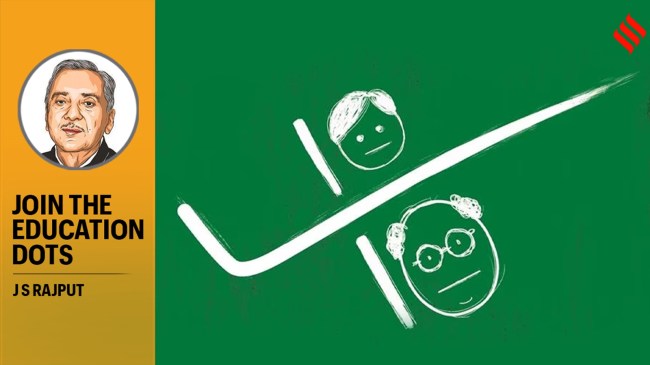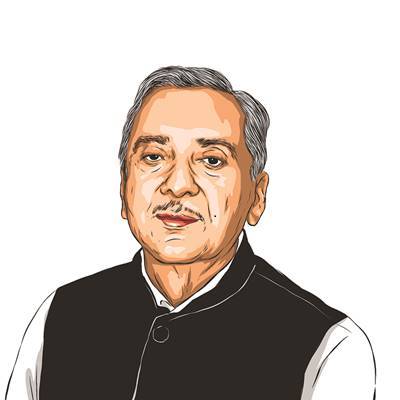Opinion How quality of higher education is tied to primary education
Could one even talk about BHU, AMU, Vishwa Bharati or Jamia Malia Islamia without referring to Pandit Madan Mohan Malaviya, Sir Syed Ahmed Khan, Rabindranath Tagore or Zakir Husain?
 We have inherited the legacy of great academics and scholars, which could inspire the youth to achieve professional targets serving the larger interests of human welfare.
We have inherited the legacy of great academics and scholars, which could inspire the youth to achieve professional targets serving the larger interests of human welfare. A sudden expansion in any organisation often leads to dilution in the quality of its products, ushering in a serious loss of institutional credibility. In academic circles, it has been witnessed in reputed universities, well-established schools, and also the systems managing large numbers of institutions. The trust deficit suffered by government schools is a case in point, of which almost every family in India is convinced. The Indian education system observed a big attitudinal change from “why educate” to the demand for “good education in a good school not only for boys but also for girls”.
The post-independence expansion of school education, and consequently, higher education was inevitable. However, there was a serious deficit in qualified and competent manpower on the one hand, and the constitutional directive to provide free and compulsory education within 10 years to all children till they attain 14 years of age on the other. Thanks to the leadership, our achievements in education deserve appreciation for the efforts made under extremely tough and restrictive circumstances. From a literacy rate of around 18-20 per cent to nearly 80 per cent against a population rise of 100 crore is no mean achievement. Credit must also go to the institutional leadership of university professors, scientists and primary teachers working under the most arduous circumstances.
Recently, the UGC has floated a draft regulation suggesting an amended framework to recruit vice-chancellors. Unfortunately, the dialogical tradition of which we were once proud, stands totally ignored. In the absence of visible initiatives for discussions, only diatribes float around. One could also say that discussions stand reduced to the level of superficial daily TV debates. Our experience shows that it is indeed tough to prepare academic leaders. However, attention has barely been paid to this aspect. The UGC’s focus is on the universities and higher institutions. The national concern must be on a much wider horizon.
The quality of higher education institutions, including their leadership, is a direct product of the quality of elementary education. One often cites the example of Japan, the most destroyed nation in World War II. The visionary leadership entrusted with the task of reconstruction decided to prioritise the primary education and the curriculum. Imagine a primary school soaked in a culture of punctuality, respect for hard work and total devotion to the value of every minute, and using it all in contribution to nation building. Learners observe it, participate in it and experience every day the thrill of being nation-builders.
Imagine a teacher reaching late by five minutes in his class and 50 children waiting for him, wasting their time. In India, it is routine. In Japan, it would be rare as the teacher would suffer from self-guilt for months and make every effort to put in extra effort. When learners educated in such an environment move out into their working life, universities will find institutional leaders in the vice-chancellors.
We have inherited the legacy of great academics and scholars, which could inspire the youth to achieve professional targets serving the larger interests of human welfare. There are instances of a single leader transforming an institution. Every great university is invariably mentioned, along with one outstanding person who took it to great heights. Could one even talk about BHU, AMU, Vishwa Bharati or Jamia Malia Islamia without referring to Madan Mohan Malaviya, Syed Ahmed Khan, Rabindranath Tagore or Zakir Husain? Could anyone ever think of BARC or ISRO without being grateful to Homi Bhabha and Vikram Sarabhai? Individuals create great institutions. Institutions prepare individuals and give wings to their imagination and curiosity. Equipped with it, they create the future of the nation and upgrade the quality of life of its people.
India is a successful democracy. Our paksh and vipaksh are always busy inpolitical bickering, totally unmindful of their constitutional responsibility to enter into serious discussions on issues like education, national security, health care and hunger. The federal set-up provides ample scope for debates and discussions on serious national issues. The Central Advisory Board on Education (CABE), presided over by the Union education minister has a very wide national representation of state education ministers, academics, and major institutions. They could discuss and resolve issues like education policy or the procedure for selecting vice-chancellors, besides thinking of how to prepare leaders at every stage in educational institutions, including primary schools.
The writer works in education, social cohesion and religious amity. He is a former director of the NCERT



